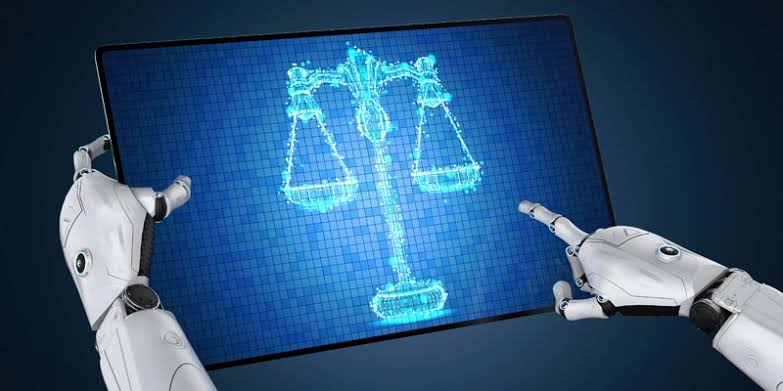Nigerian startup, Case Radar, has launched a generative artificial intelligence platform for the legal sector, promising to make Nigerian laws and court judgments instantly accessible to lawyers, students, and the public.
Agbo Obinnaya, the company’s CEO, says the platform addresses a deep-rooted problem: most people struggle to access clear law and legal guidance, and rely on traditional processes that limit their workflow.
“It’s not just about automating legal tasks; it’s about democratising the law, giving both lawyers and the public the ability to access accurate legal information instantly,” he said in a recent statement.
According to Obinnaya, Case Radar, a tech legal generative AI platform, provides a one-stop shop for lawyers, students, and everyday Nigerians seeking legal guidance. Users can access real-time legal interpretations, connect with lawyers, and explore case studies.
AI Trained on Nigerian Law
According to the company, the platform’s AI model has been trained exclusively on Nigerian laws and court judgments to ensure accuracy and credibility.
“You can rely on it like the way you should rely on a legal assistant or someone who has studied law. The only difference is that this AI has not been called to the bar and cannot practice as a lawyer,” Obinnaya said.
He added that, unlike many AI tools that “hallucinate” answers, Case Radar is designed to reject queries that do not exist in its database.
“The real opportunity is in making the law as accessible as Google search, as reliable as your trusted lawyer, and as fast as AI, and that’s the future I’m working towards,” Obinnaya said.
From Classroom Frustration to AI Innovation
According to Obinnaya, the idea for Case Radar began while he was a law student at Nnamdi Azikiwe University. He said he realised that law textbooks offered limited resources and that online legal platforms were outdated and difficult to navigate.
Frustrated by the limited resources in law textbooks, he envisioned a platform that could serve legal information with the speed and simplicity of an internet search engine.
Together with co-founder Ngwu AnthonyMark, the team conducted surveys among lawyers and law students. The results revealed recurring complaints about affordability, outdated platforms, and poor user experience. Those insights shaped the design of Case Radar, which officially launched in 2024.
Helping Lawyers, Not Replacing Them
While AI disruption often raises fears of job loss, Obinnaya dismissed concerns that the AI could threaten legal jobs, insisting the technology is meant to assist professionals rather than replace them.
Case Radar, he says, is a digital legal assistant that lawyers can rely on to meet deadlines, interpret complex documents, and focus on strategy instead of manual research.
He said the platform has also connected several young lawyers to their first clients, reducing barriers for those without a physical office.
Globally, the legal technology market is expanding swiftly, valued at approximately $29.7 billion in 2023 and expected to nearly double to $55 billion by 2029.
While Africa hosts a growing number of legal tech pioneers, Case Radar’s closest peers include Citizens’ Gavel, Hope Behind Bars Africa, LawPavilion’s Case Manager, among many others.
How It Works
According to the team, registration is quick, and new users get three free trials to explore the system. Pricing is simple: ₦1,000 per hour or ₦3,000 per day for unlimited access.
From researching case law to interpreting government documents, Case Radar aims to cut hours of legal work into minutes. For students, it offers a shortcut to understanding precedents and legal principles without endless library searches.
“We’ll be incorporating a lot of suggestions people have made, which can improve their experience. Everything is to make sure that we give them something better than before,” Obinnaya said.
The startup launched Version 2 of the platform in April 2025 and plans to release Version 3 in early 2026. The update will include laws from other African countries as part of its regional expansion.
Talking Points
It is impressive that Case Radar has developed a generative AI platform specifically trained on Nigerian laws and court judgments, addressing a critical challenge in accessing accurate legal guidance.
This single feature alone positions the platform as a practical solution for lawyers, students, and everyday Nigerians who previously relied on slow, costly, or outdated legal resources.
At Techparley, we see how tools like this can accelerate digital transformation in the legal sector, bringing real value to professionals and citizens who need reliable legal interpretations quickly.
The integration of AI-driven legal research, document analysis, and access to case studies means lawyers and students can now operate with greater efficiency and confidence, reducing the time spent navigating complex legal materials.
However, there is still room to grow. Adoption will depend on affordability, user education, and the ability to tailor the platform to the daily realities of law practice and legal studies in Nigeria.
As Case Radar scales, exploring partnerships with law schools, bar associations, and legal aid organizations could accelerate onboarding and increase its impact across both professional and public segments.





